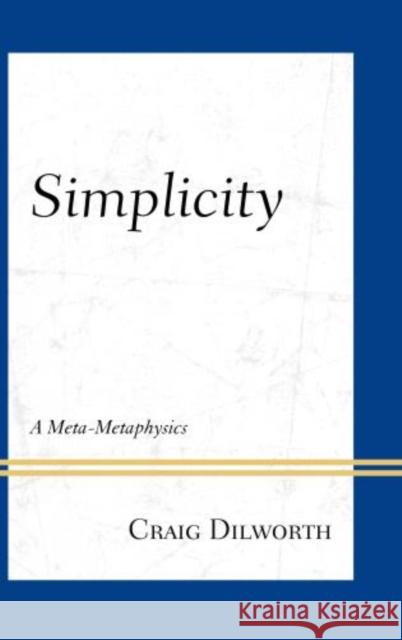Simplicity: A Meta-Metaphysics » książka
Simplicity: A Meta-Metaphysics
ISBN-13: 9780739177235 / Angielski / Twarda / 2012 / 202 str.
Simplicity presents a new, wide-ranging philosophical theory, one that concerns how reality is conceived. In so doing it also provides a new logic with which to approach conceptual situations. In this book, Craig Dilworth replaces the dualistic, true/false approach of formal logic with a three-part basis for thought. This basis consists of the categories of simplicity, complexity, and nothingness. The category of simplicity is paradoxical, while that of complexity is unproblematic, and that of nothingness is self-contradictory. When applied to ontological categories, such as those of substance, self, or causality, these categories of reason can resolve, rather than solve, intellectual issues. The notion of perspective is integral to the simplicity way of thinking. A particular entity--such as the self--may be conceived as simple in one perspective, while being complex or nothing in another. Combined with the categories of the simplicity theory, Dilworth uses the notion of perspective to reveal a type of conceptual conflict that differs from contradiction. So, for example, simplicity better represents the relation between competing scientific theories--such as the wave and particle theories of radiation--as a form of perspectival incompatibility. The book distinguishes between two forms of simplicity: analytic and synthetic, which can respectively be conceived of as a point and a whole. Again, the notion of perspective is employed: what is analytically simple in one perspective may well be synthetically simple in another. In this book, the simplicity way of thinking is applied to intellectual issues in philosophy, set theory, and physics. These applications show how simplicity can provide real insight into a wide variety of conceptually complex situations.











